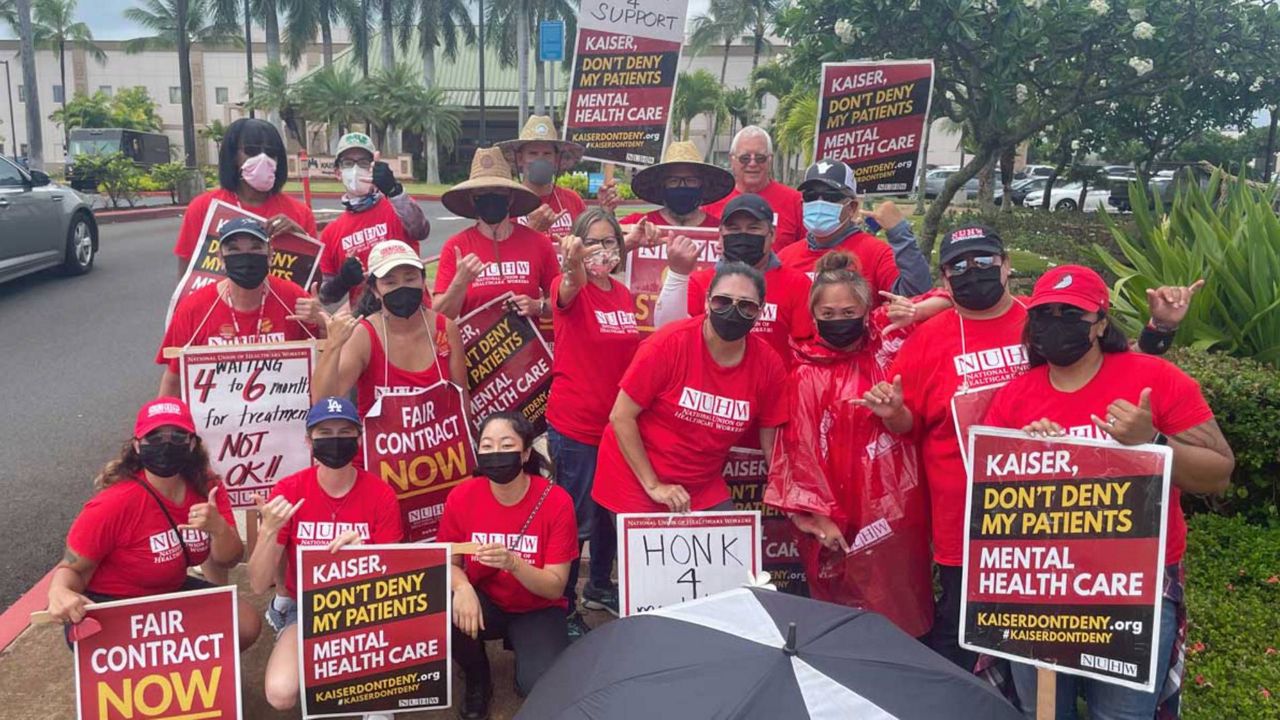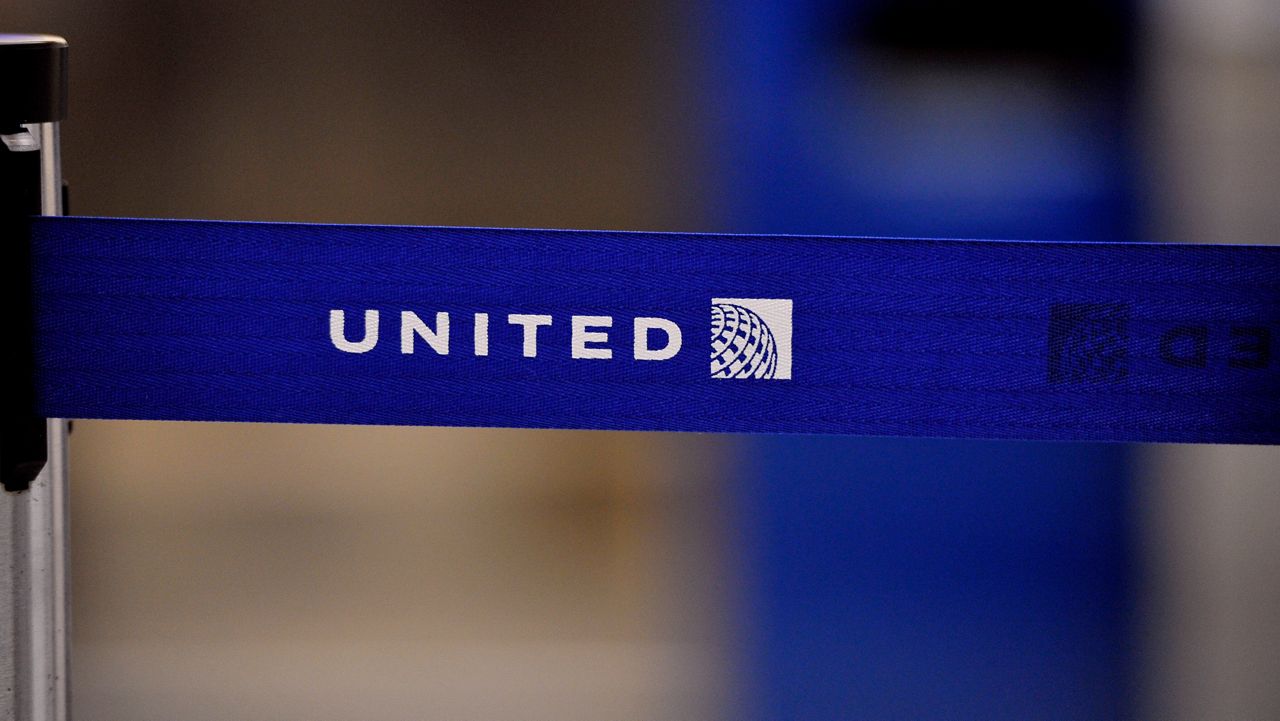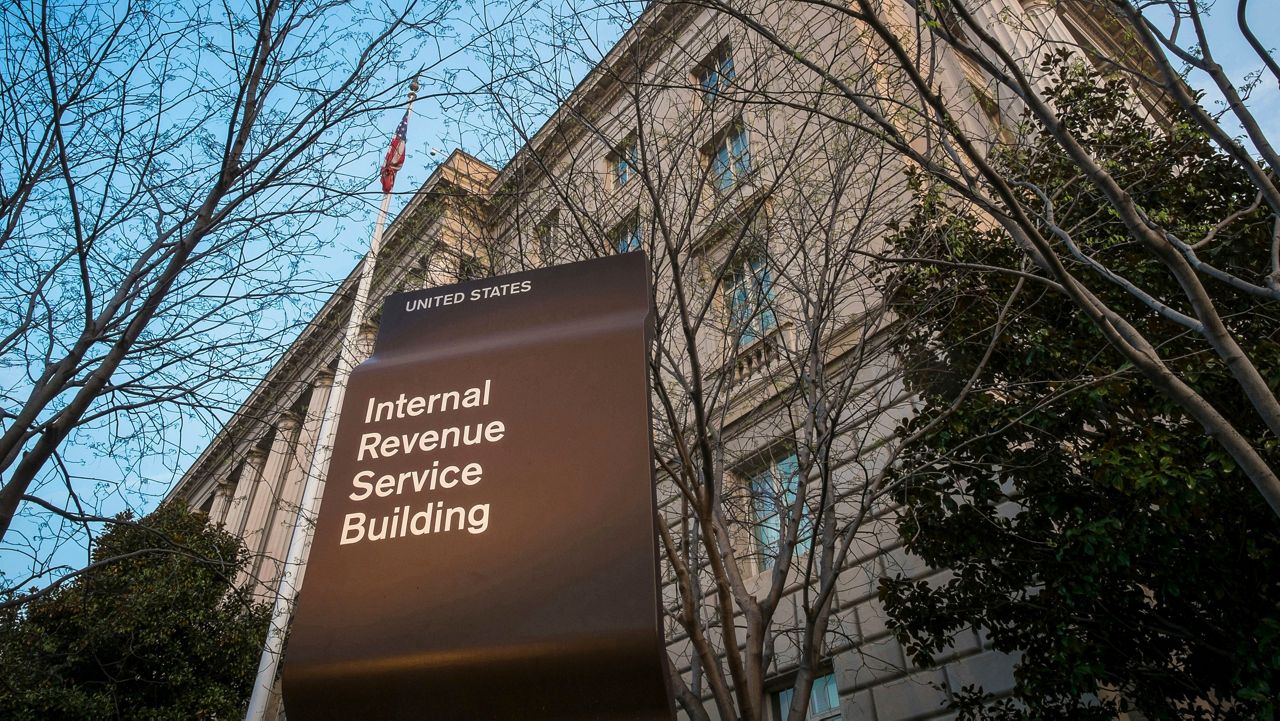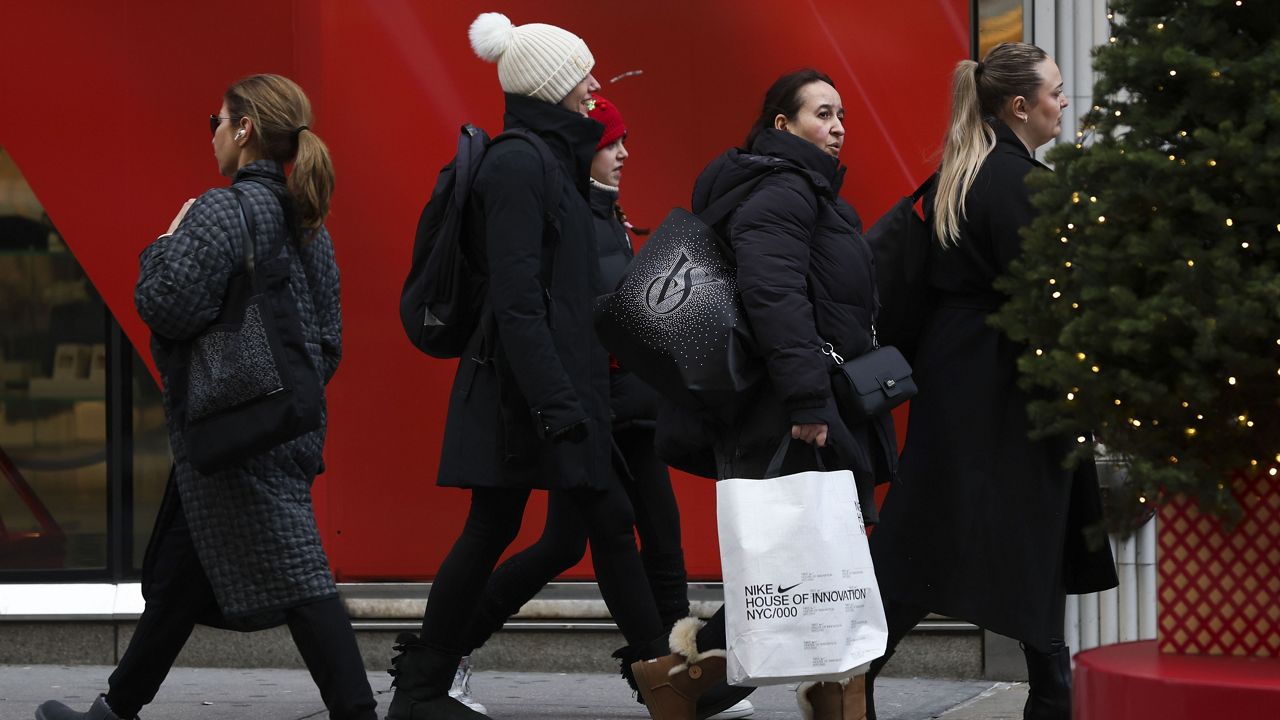Mental health therapists at Kaiser Permanente have been on strike since Monday, forcing the health care company to cancel and reschedule appointments for many patients.
The strikers are demanding wage increases and no cuts to retirement benefits, and they say this will help Kaiser hire more therapists and retain the current staff, according to the National Union of Healthcare Workers spokesperson Matt Artz, who replied to questions from Spectrum News in an email. Specific numbers about salaries were not provided.
The National Union of Healthcare Workers represents 57 mental health professionals across the state, which includes social workers, nurses, psychologists and others. The strikes have been held at the Honolulu Medical Office, Moanalua Medical Center and Waipio Medical Office on Oahu, the Maui Lani Medical Office on Maui and the Hilo Medical Office on Hawaii Island.
According to those striking, there are not enough mental health professionals and this has led to long wait times for patients seeking to see a therapist or get treatment.
“We are severely understaffed. We've been understaffed for over 10 years, and patients are having to wait anywhere between four to six months to basically start treatment,” said Andrea Kumura, a licensed clinical social worker at Kaiser’s Waipio clinic, in an interview with Spectrum News. She said her next available appointment isn’t until November.
“We are here for our patients,” said Kumura about being on the picket lines. “We're having such a difficult time trying to help people get better because we just don't have the availability of appointments because we're so swamped.”
Kumura said the Emergency Room has “become a de facto place for people to get mental health care” when patients need care before their appointments occur.
“They end up in the Emergency Room because they've already tried to commit suicide or they're thinking about suicide or they've self harmed or their substance abuse problem has gotten so bad,” Kumura said. “That’s pretty common now, unfortunately.”
In Hawaii, Kaiser has 266,000 members. However, the health care company said in a statement sent to Spectrum News that only a small percentage of Kaiser members seek mental health services. Kaiser did not respond to a follow-up question from Spectrum News asking what percentage of Kaiser members seek mental health services. Kaiser also said that about half of their patients seeking assistance with mental health receive care from community providers who are not involved with the strike.
For patients affected by the strike, Kaiser is rescheduling appointments or for those with urgent needs they are arranging appointments with a Kaiser or community-contracted provider, according to a Kaiser spokesperson in an email to Spectrum News. The health care company’s statement said many mental health staff continue to work despite the strike.
“We greatly respect the right of all our mental health professionals to decide for themselves whether or not to strike, and we appreciate those who chose to come to work for their patients,” Kaiser said.
Across the islands, hospitals are facing staffing shortages and a lack of affordable housing has exacerbated the problem, especially as housing prices skyrocketed during the pandemic. Kumura said that the high cost of living in Hawaii affects Kaiser’s mental health employees and that over half the staff have second jobs.
Kaiser said in a statement sent to Spectrum News they are currently working to recruit for 14 open positions for psychologists, social workers and mental health professionals. The health care company also plans to hire for 11 mental health positions next year, and will add the same number of positions each year through 2025.
Kumura questioned whether Kaiser would be able to recruit more employees.
“In order to increase staffing, it doesn't make any sense that Kaiser is trying to offer lower wages to new hires and cuts to benefits to both current employees and new hires,” Kumura said.
A similar strike is taking place in Northern California, where 2,000 Kaiser mental health workers, who are represented by the same union, have been on strike for the last three weeks. California regulators recently launched an investigation into whether Kaiser is violating state laws by failing to offer timely access to mental health care during the strike, according to local media.
In Hawaii, Kaiser’s accreditation status was downgraded in May by the National Committee for Quality Assurance, citing a lack of access to mental health care. As a result, the health care company was put on a corrective action plan.
In May, a three-day strike was held by the same Hawaii mental health professionals, with the hope that a shorter strike would result in Kaiser agreeing to a contract that would help increase staffing, according to Artz.
“It is unfortunate that NUHW leaders are asking our caring and compassionate mental health employees to walk away from their patients. This is the second time in less than a year that the union has called on our 60 NUHW-represented mental health providers to strike in an attempt to disrupt care and create pressure at the bargaining table,” Kaiser said in a statement.
Bargaining dates are now set for Sept. 6 and 13.
“We are pleased to have bargaining dates set as this strike does not need to continue. We remain committed to reaching a fair and equitable agreement that is good for our clinicians and our patients. While NUHW claims it is fighting for increased access to care, most of the issues the union has still on the table are about wages and benefits,” Kaiser added.
Michelle Broder Van Dyke covers the Hawaiian Islands for Spectrum News Hawaii.









